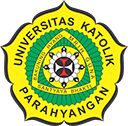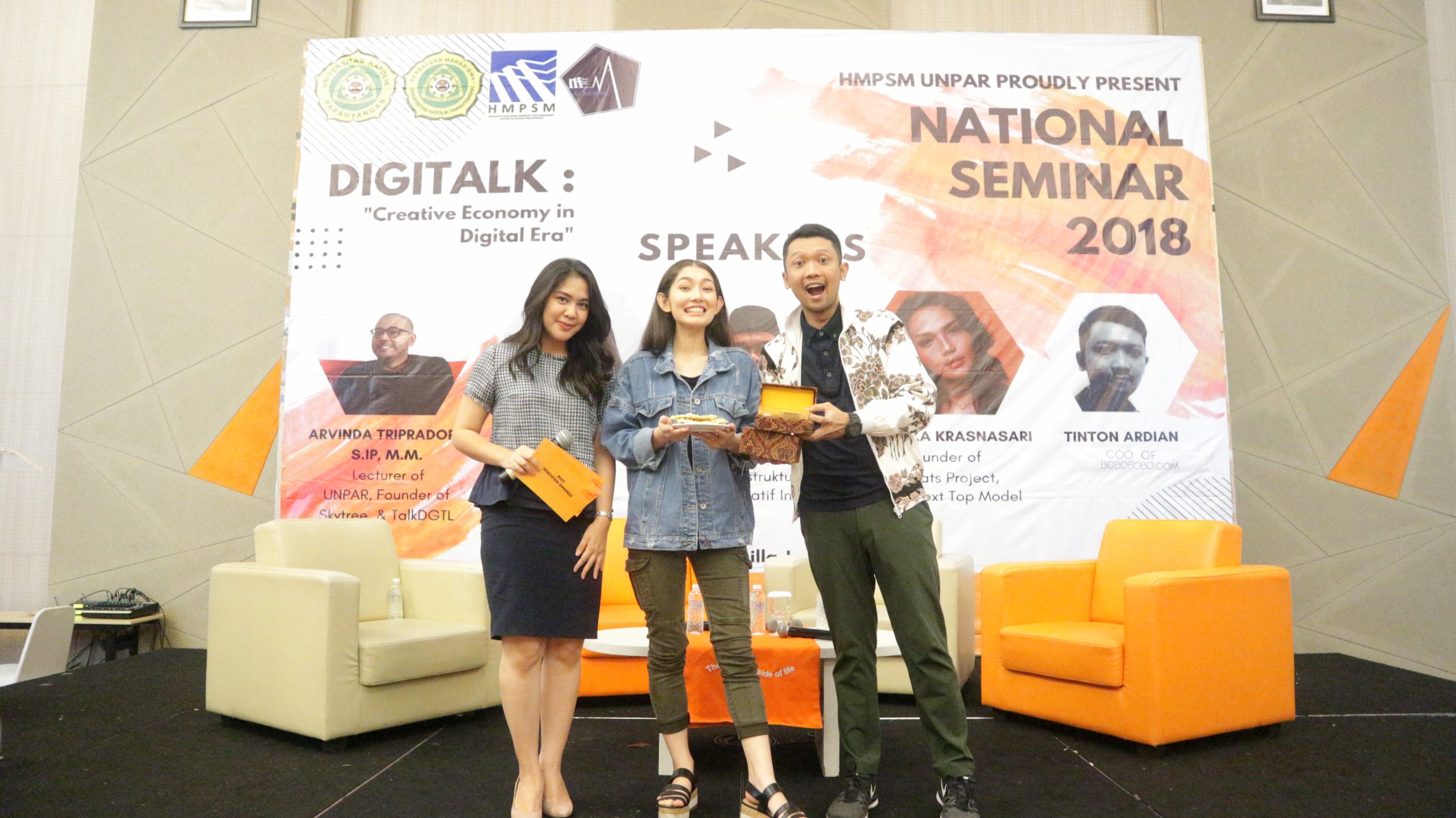Entering 2018, advances in digital technology were increasingly felt by humans and continued to change people’s lives. The Management Study Program Student Association (HMPSM) raised this phenomenon in the 2018 National Seminar: Digitalk, with “Creative Economy in the Digital Era” as the theme. The activity was held on Saturday, April 21, and was attended by students and young people who were interested in the phenomenon of digitalization and the development of the creative economy, especially in Indonesia.
In this full-day seminar activity, the participants got a lot of new insights related to economic phenomena and especially actual management directly from experts in their fields.
The choice of this theme was certainly well-considered. According to Dorotea Wulan, the chief executive of the National Seminar, as we entered the era of digital technology, a phenomenon of technology that was able to compete with human resources arose. Humans would only be needed as operators. “The only resource that cannot be replaced by technology is intellectual resources,” she explained, one of which was reflected in the rise of the creative economy. She said that this activity could prepare a young workforce, such as students, to be able to compete and face changes in the digital era.
From policies to creative economy experiences
Seminar activities were divided into four sessions. “We start from the bottom, first with the creative economy, then with the technologies,” explained Dorotea Wulan, who is also known as Dora. In the first session, Hari Santoso Sungkari, Deputy for Infrastructure for the Indonesian Creative Economy Agency (BEKRAF), gave an overview of the direction of creative economy development in Indonesia. His presentation was then followed by the session of Arvinda Tripradopo, founder of Skytree and lecturer at UNPAR’s Faculty of Economics.
The event continued with a talk show featuring the founder of the LOOKATS Project and Asia’s Next Top Model contestant, Veronika Krasnasari. Finally, the activity was closed by the last two speakers, namely Devina Aureel (Instagram Content Creator) and Tinton Putro (COO of bobobobo.com). These speakers represented a generation of Indonesian creative workers. They shared their perspectives and experiences with seminar participants.
There was something different in this seminar. The committee used a different approach in the 2018 national seminar activities. “We bring a fun atmosphere,” said Dora. One of them was the surprise prepared not only for the participants but also for the speakers. This increased the excitement of the event.
Through the 2018 National Seminar, Dorotea hoped that the participants could better understand the creative economy and industrial digitalization. “We hope the explanation given can be understood,” she said. She hoped that the participants would not only understand the materials but also be able to anticipate the future changes that would occur, especially in the digital industry.
‘


